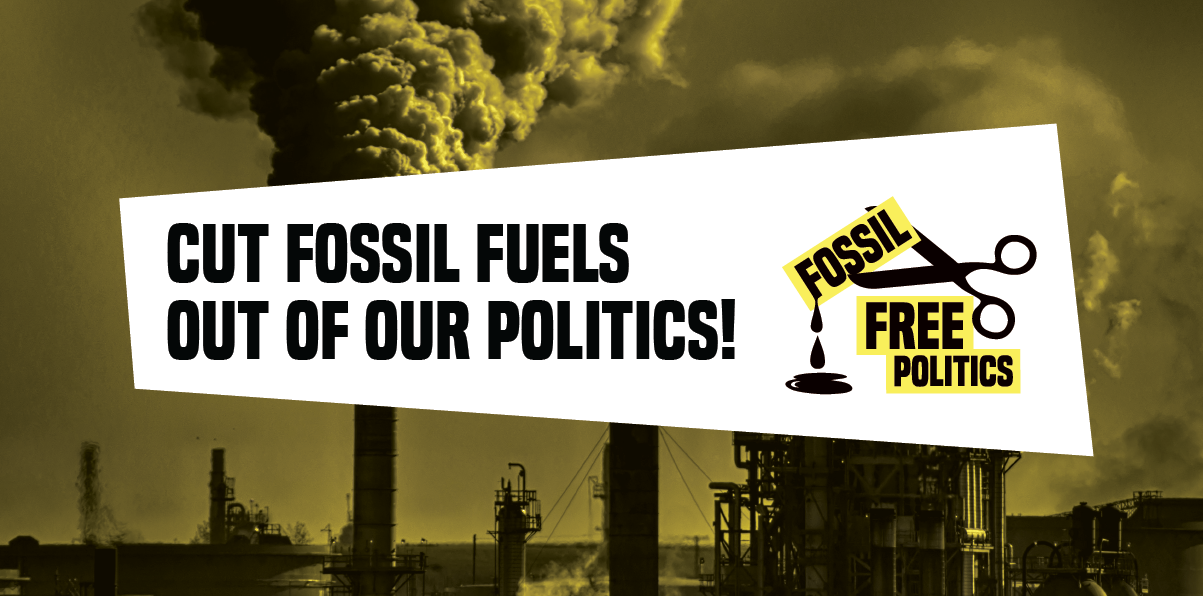
To avert climate breakdown, the vast majority of the fossil fuel industry’s gas, oil, and coal reserves need to stay in the ground. Fossil fuel lobbyists have relentless- ly tried for decades to deny science, and delay, weak- en, and sabotage climate action - despite knowing their business heats the planet and destroys communities. Their business model is killing our future. To tackle the climate emergency, and ensure that climate policy is conducted entirely in the public interest, we must cut fossil fuel interests out of our politics, similar to existing restrictions on the tobacco industry.
We need a fossil free politics before it’s too late. This means no more meetings, conflicts of interest, partnerships, or collaborations with fossil fuel lobby- ists in our democratic institutions (including the UN and EU institutions). In concrete terms, this would mean four definitive and courageous measures. Here we explain the first one:
1) Institute a firewall to end fossil fuel industry access to decision-making, i.e., no lobby meetings; no seats in expert and advisory bodies; no role in governmental research bodies.
This would include but not be limited to:
-
Limit lobby meetings with the fossil fuel industry but also in- teractions with organisations or individuals that work to further the interests of the fossil fuel industry, such as consultancies, law firms, think tanks and public relations (PR) companies;
-
Interactions with the fossil fuel industry should only occur where strictly necessary to enable lawmakers, regulatory bodies, and pub- lic authorities to effectively regulate the industry and accelerate the transition to a fossil free Europe.
-
Where interactions do occur, they must be requested by public officials or law makers and be conducted transparently, for example through public hearings, public notice of interactions, minutes of meetings.
-
Fossil fuel corporations and their representatives are excluded from participation in public institutions’ expert and advisory bodies (including representatives of fossil fuel corporations who are ‘in per- sonal capacity’);
-
Fossil fuel corporations and their representatives are excluded from participation in public research bodies;

